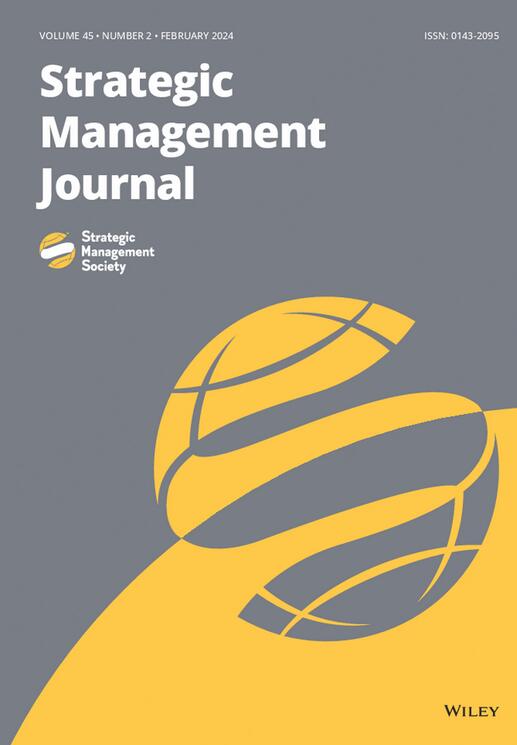对员工资源可转让性和价值占有的就业限制
IF 7.2
1区 管理学
Q1 BUSINESS
引用次数: 0
摘要
研究摘要我们研究了限制公司资源外流的四种雇佣限制--保密协议(NDA)、非招揽协议、非招聘协议和非竞争协议的共同采用情况,以及它们与员工价值占有的关联。利用新颖的个人和公司层面的调查数据,我们发现,当公司采用限制措施时,它们倾向于采用所有四种限制措施或仅采用保密协议。当员工能够获得宝贵的资源、非竞争性协议更具可执行性以及各州采用不可避免的披露原则时,采用所有四种限制的可能性更大。采用所有四种限制的员工比仅采用 NDA 的员工收入低 5.4%,这种影响主要是由谈判能力较低的员工造成的。对收入和单一限制(如只采用非竞争性协议)的分析结果与考虑联合采用的结果相反,这可能是由于选择的原因。我们研究了企业是否以及何时采用四种可保护此类资源的雇佣限制--不披露信息、不招揽客户或同事、不加入或创办竞争对手的协议,并考察了这些限制与员工价值获取的关联程度。利用新颖的企业和员工层面的调查,我们发现企业大多同时采用所有四种限制,或者只采用保密协议,或者不采用任何限制。当员工能够获得有价值的资源、竞业禁止更具可执行性以及各州采用不可避免的披露原则时,他们更有可能采用所有四种限制。最后,相对于仅有非竞争性协议的工人,所有四种限制条件的工人平均收入要低 5.4%,这主要是受议价能力低的工人的影响。本文章由计算机程序翻译,如有差异,请以英文原文为准。
Employment restrictions on resource transferability and value appropriation from employees
Research SummaryWe examine the joint adoption of four employment restrictions that limit firm resource outflows—nondisclosure (NDA), non‐solicitation, non‐recruitment, and noncompete agreements—and their associations with value appropriation from employees. Using novel individual‐ and firm‐level survey data, we find that when firms adopt restrictions, they tend to adopt either all four restrictions or only an NDA. Adoption of all four restrictions is more likely when workers have access to valuable resources, noncompetes are more enforceable, and states adopt the inevitable disclosure doctrine. Employees with all four restrictions earn 5.4% less than employees with only NDAs, and this effect is driven by workers with low bargaining power. Analyses of earnings and a single restriction (e.g., only noncompetes) yield opposite results from those considering joint adoption, likely because of selection.Managerial SummaryValuable firm resources are often embedded in employees. We study whether and when firms adopt four employment restrictions that could protect such resources—agreements not to disclose information, not to solicit clients or coworkers, and not to join or start a competitor—and examine the extent to which they are associated with value capture from employees. Using novel firm and worker‐level surveys, we find that firms mostly adopt either all four restrictions together, only an NDA, or use no restrictions. Workers are more likely to have all four restrictions when they have access to valuable resources, when noncompetes are more enforceable, and when states adopt the inevitable disclosure doctrine. Finally, all four restrictions are associated with 5.4% lower earnings on average relative to workers with only an NDA, driven by workers with low‐bargaining power.
求助全文
通过发布文献求助,成功后即可免费获取论文全文。
去求助
来源期刊

Strategic Management Journal
Multiple-
CiteScore
13.70
自引率
8.40%
发文量
109
期刊介绍:
At the Strategic Management Journal, we are committed to publishing top-tier research that addresses key questions in the field of strategic management and captivates scholars in this area. Our publication welcomes manuscripts covering a wide range of topics, perspectives, and research methodologies. As a result, our editorial decisions truly embrace the diversity inherent in the field.
 求助内容:
求助内容: 应助结果提醒方式:
应助结果提醒方式:


